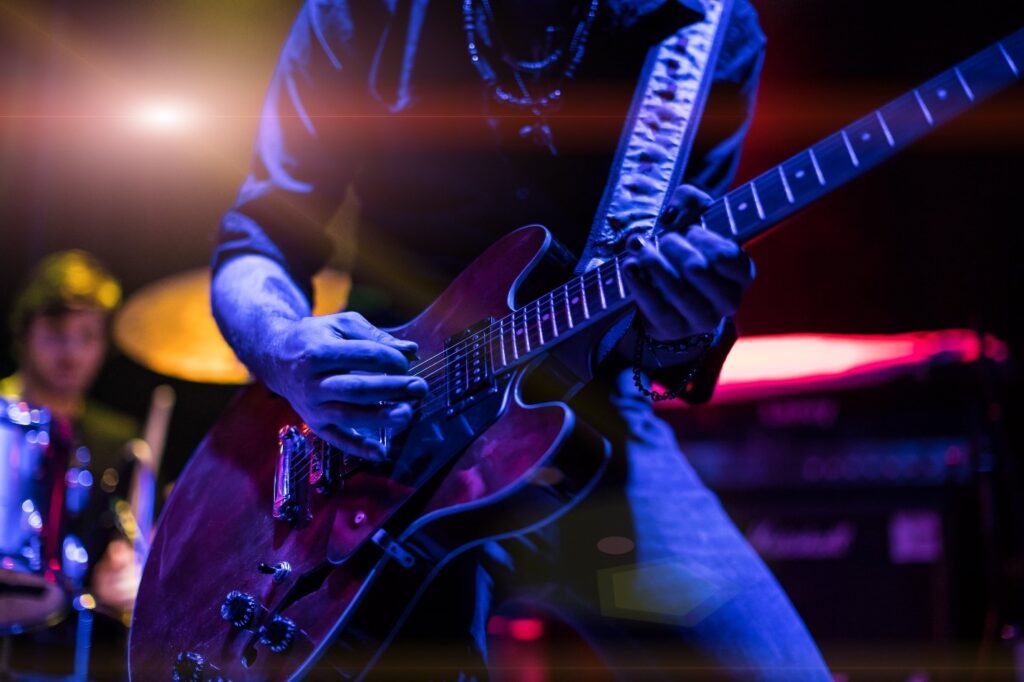
Gerard Zappa of Wooster, a seasoned musician from Cincinnati, Ohio, now performing as the bass guitarist and background vocalist for the Steve Augeri Band, exemplifies the enduring impact of rock and roll on contemporary music. The Steve Augeri Band, fronted by the former lead singer of Journey, Steve Augeri, who led the iconic group from 1998 to 2006, continues to carry the spirit of classic rock while engaging new audiences. Zappa’s career reflects how the power of rock music, a genre that revolutionized sound in the 20th century, continues to inspire artists across different musical landscapes today.
Rock’s Timeless Influence on Modern Sound
The foundational elements of rock and roll—its raw energy, rebellious spirit, and driving rhythms—continue to shape modern music in ways that are sometimes subtle but always significant. Emerging in the 1950s from the fusion of blues, jazz, and country music, rock and roll quickly became a dominant cultural force. This revolutionary sound, characterized by electrifying guitar riffs and powerful vocals, broke away from traditional music structures and inspired generations of musicians to experiment with sound, push boundaries, and challenge societal norms.
Today, the legacy of rock lives on as contemporary artists across various genres continue to draw from its core elements. Whether in pop, hip hop, or even electronic music, the essence of rock—the ability to channel emotion and energy through music—remains a critical influence. The aggressive riffs of hard rock, the introspective lyricism of folk rock, and the rebellious edge of punk have all become touchstones for today’s music creators who infuse these sounds into their own work, creating a dynamic blend of past and present.
Crossing Genre Boundaries
One of the most striking aspects of rock and roll’s legacy is its versatility and ability to transcend genre boundaries. The genre has been a chameleon, continuously reinventing itself and blending with other musical styles. Over the years, rock’s influence has crossed into pop, hip hop, country, and even electronic music, creating a rich tapestry of sound that defies strict categorization. The boundary-breaking spirit of rock has encouraged modern musicians to experiment, pushing genres to their limits and fusing different styles to create fresh, innovative sounds.
This blending of genres is not just a modern phenomenon; it has roots in the early days of rock itself, when blues, gospel, and country were brought together to create something entirely new. That spirit of experimentation remains alive today as artists incorporate rock elements into tracks that might otherwise be classified as pop or rap. The heavy use of electric guitars, strong backbeats, and emotionally charged lyrics continues to be prevalent in today’s music, proving that rock’s foundational sound still has a place in contemporary music production.
Emotional Connection and Authenticity
At the heart of rock music is an emotional intensity that resonates deeply with listeners. From its early days, rock has been about expressing raw, often rebellious emotions in a way that speaks to universal human experiences—whether it’s love, loss, defiance, or social change. The genre has always been closely tied to authenticity, with rock musicians often seen as truth-tellers, using their platform to address personal struggles or political issues.
That sense of authenticity is something modern artists continue to strive for. Many of today’s musicians, whether in indie rock or mainstream pop, have been inspired by the emotional depth of rock legends who were unafraid to wear their hearts on their sleeves. Artists who might not label themselves as traditional rock musicians still draw from rock’s legacy of vulnerability, using music to convey a sense of honesty that resonates with their audience. This emotional authenticity ensures that rock’s legacy remains strong, even in genres that might appear far removed from the classic rock sound.
Live Performances: The Power of Rock on Stage
Another key element of rock and roll’s lasting influence is the importance of live performances. Rock has long been associated with the energy and spectacle of the live concert experience, with iconic rock acts known for their stage presence and interaction with the crowd. The intensity of a rock concert, where musicians and audience feed off each other’s energy, set the standard for how live music should be performed.
Gerard Zappa, through his work with the Steve Augeri Band, continues this tradition. The band’s live shows are a testament to the power of rock music in bringing people together, creating an electric atmosphere that captures the essence of rock’s enduring appeal. For modern musicians, the influence of rock’s live performance style can be seen across genres, from the grand production of pop concerts to the raw energy of indie performances. Rock’s emphasis on connecting with the audience, delivering an authentic and high-energy performance, remains a vital part of the modern music experience.
The Lasting Impact of Rock Icons
The legacy of rock and roll is also deeply tied to the icons who have shaped it. Bands like The Beatles, The Rolling Stones, Led Zeppelin, and Queen not only revolutionized music but also set a blueprint for what it means to be a successful and enduring artist. These rock legends crafted music that has stood the test of time, and their influence is still felt by today’s artists.
Modern musicians look to these rock icons for inspiration—not just in terms of sound, but in how they approached their careers with innovation, creativity, and passion. Whether it’s songwriting, stagecraft, or pushing the boundaries of what music can achieve, the lessons learned from rock’s greatest bands are passed down to each new generation of artists who seek to make their mark in the industry.
Rock and Roll: A Legacy That Endures
Rock and roll is more than just a genre—it’s a force that continues to inspire and shape modern music. Its legacy can be seen in the way contemporary artists approach their craft, blending genres, channeling emotion, and pushing the boundaries of what music can be. From Gerard Zappa’s performances with the Steve Augeri Band to the countless musicians worldwide who carry rock’s rebellious spirit into new musical territories, the influence of rock and roll shows no signs of fading.
As long as there are musicians willing to challenge convention, express raw emotion, and create new sounds, the legacy of rock and roll will live on, inspiring future generations and continuing to shape the music industry for years to come.



